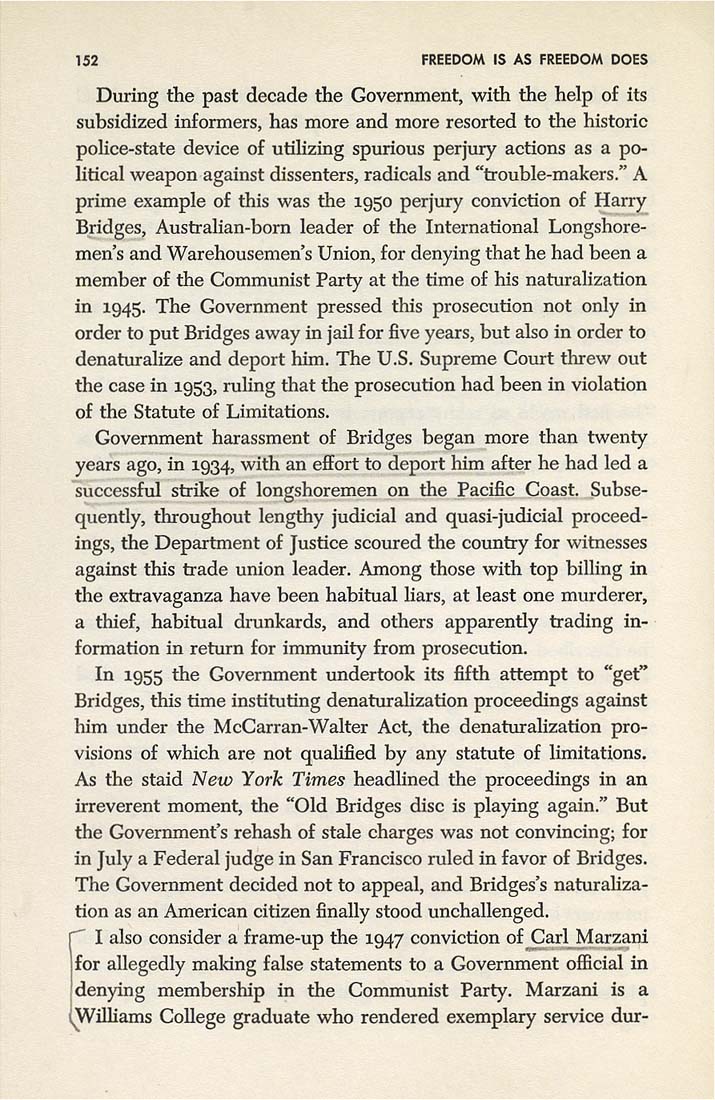152 FREEDOM IS AS FREEDOM DOES
During the past decade the Government, with the help of its
subsidized informers, has more and more resorted to the historic
police-state device of utilizing spurious perjury actions as a po¬
litical weapon against dissenters, radicals and "tiouble-makers." A
prime example of this was the 1950 perjury conviction of Harry
Bridges, Austialian-born leader of the International Longshore¬
men's and Warehousemen's Union, for denying that he had been a
member of the Communist Party at the time of his naturalization
in 1945. The Government pressed this prosecution not only in
order to put Bridges away in jail for five years, but also in order to
denaturalize and deport him. The U.S. Supreme Court threw out
the case in 1953, ruling that the prosecution had been in violation
of the Statute of Limitations.
Government harassment of Bridges began more than twenty
years ago, in 1934, with an effort to deport him after He had led a
successfifl stiike of longshoremen on the Pacffic Coast. Subse¬
quently, throughout lengthy judicial and quasi-judicial proceed¬
ings, the Department of Justice scoiued the countiy for witnesses
against this tiade union leader. Among those with top billing in
the extiavaganza have been habitual liars, at least one murderer,
a thief, habitual drunkards, and others apparently tiading in¬
formation in return for immunity from prosecution.
In 1955 the Government undertook its fifth attempt to "get"
Bridges, this time instituting denaturalization proceedings against
him under the McCarran-Walter Act, the denaturalization pro¬
visions of which are not quahfied by any statute of limitations.
As the staid New York Times headlined the proceedings in an
irreverent moment, the "Old Bridges disc is playing again," But
the Government's rehash of stale charges was not convincing; for
in July a Federal judge in San Francisco ruled in favor of Bridges.
The Government decided not to appeal, and Bridges's naturaliza¬
tion as an American citizen finally stood unchallenged,
r" I also consider a frame-up the 1947 conviction of Carl Marzani
for allegedly making false statements to a Govermnent official in
jdenying membership in the Communist Party. Marzani is a
(WiUiams Coflege graduate who rendered exemplary service dur-
|








